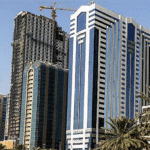Introduction
Dubai’s real estate market has grown into one of the most dynamic in the world, attracting expatriates, investors, and homeowners from every corner of the globe. With its iconic skyline, world-class infrastructure, and strong investor-friendly policies, the emirate continues to stand out as a preferred destination for property ownership.
Dubai’s real estate market is one of the most dynamic in the world, attracting expatriates, investors, and homeowners. Before buying, one of the most important decisions is choosing between freehold property in Dubai and leasehold property in Dubai.
In this detailed guide, we will break down everything you need to know about freehold vs leasehold Dubai, including ownership rights, maintenance obligations, pros and cons, property laws, and financial considerations to help you make an informed decision.
What is Freehold Property in Dubai?
A freehold property means that the buyer has complete ownership of the property and the land it is built on. Once purchased, the property is registered under the buyer’s name with the Dubai Land Department (DLD), and the owner receives a title deed.
Key Features of Freehold Ownership
- Full ownership of the unit and the land.
- Ownership rights are permanent and can be inherited.
- The owner has the freedom to sell, lease, or rent the property at any time.
Available in designated freehold areas across Dubai, such as Downtown Dubai, Dubai Marina, Palm Jumeirah, and Jumeirah Village Circle.
✅ Pros of Freehold Property in Dubai
- Permanent ownership gives you full control over your property.
- Higher resale value compared to leasehold properties.
- Can be passed down as inheritance to family members.
- Flexibility to rent, sell, or renovate without restrictions.
Attracts foreign investors because of full ownership rights in designated areas.
❌ Cons of Freehold Property in Dubai
- Higher purchase cost compared to leasehold properties.
- Higher service charges in some luxury communities.
- Long-term commitment required, making it less flexible for short-term residents.
- Limited to designated freehold zones, not available everywhere in Dubai.
You may like: Why leasing is the smart step in Dubai Real Estate for agents and investors
What is Leasehold Property in Dubai?
A leasehold property means that the buyer (known as the leaseholder) has the right to use the property for a set number of years, typically between 10 and 99 years. However, ownership of the land always remains with the freeholder (the developer or landowner).
Key Features of Leasehold Ownership
- The leaseholder owns the property for the duration of the lease.
- The land and structural ownership remain with the freeholder.
- At the end of the lease, ownership reverts back to the freeholder, unless renewed.
- Lease terms and responsibilities are clearly outlined in the contract.
✅ Pros of Leasehold Property in Dubai
- Lower purchase cost, making it affordable for first-time buyers.
- Access to well-established communities where freehold may not be available.
- Good option for expats planning to stay in Dubai for a medium-term period.
- Can still generate rental income during the lease period.
- Flexible for those who do not want permanent ownership.
❌ Cons of Leasehold Property in Dubai
- Ownership is temporary, limited to the duration of the lease.
- Property reverts to the freeholder at the end of the lease term.
- Lease terms may restrict renovations or modifications.
- Resale value is often lower than freehold properties.
- May involve higher maintenance obligations, depending on the contract.
Key Comparison of Freehold vs. Leasehold
|
Feature |
Freehold Property |
Leasehold Property |
|
Ownership Rights |
Full ownership of property + land |
Property rights for fixed years (10–99) |
|
Duration |
Permanent (lifetime + inheritance) |
Temporary (lease period only) |
|
Resale Value |
Higher resale demand |
Lower resale value |
|
Maintenance |
Unit maintenance by owner; community by developer/HOA |
Often more obligations on leaseholder |
|
Cost |
Higher purchase cost |
More affordable |
|
Best For |
Long-term investors, inheritance, high ROI |
Medium-term expats, lower budget buyers |
Maintenance Responsibilities: Freehold vs. Leasehold
One of the most important aspects to consider when buying property in Dubai is who handles the maintenance and repairs.
Freehold Properties The owner is responsible for maintaining the interior of their unit (painting, plumbing, appliances, etc.). However, common facilities and shared areas, such as swimming pools, gyms, elevators, and landscaping, are usually maintained by the developer or the homeowners’ association.
Leasehold Properties Leaseholders may be responsible for more extensive maintenance obligations, depending on the terms in the lease. For example, they might need to cover certain repair costs or renovations. Still, major structural repairs and large-scale building issues typically remain the responsibility of the freeholder.
Understanding these responsibilities is essential, as ongoing costs can affect your overall property investment strategy in Dubai.
Freehold vs. Leasehold: Which Is Better for You?
There is no one-size-fits-all answer your decision depends on your long-term plans, financial capacity, and the purpose of buying property in Dubai.
Choose Freehold If:
- You are looking for long-term ownership and want full control of your property.
- You plan to pass the property down as part of inheritance or generational wealth.
- You want higher resale value and more freedom to sell, lease, or rent.
- You are an investor seeking strong returns in Dubai’s prime freehold communities.
Choose Leasehold If:
- You are on a tighter budget but still want to enter Dubai’s real estate market.
- You don’t need permanent ownership and are comfortable with a lease period.
- You are an expat planning to stay in Dubai for a medium-term duration (10–20 years).
- You want access to certain established neighborhoods where freehold options may not exist.
Legal Aspects of Property Ownership in Dubai
The Dubai Land Department (DLD) governs all real estate transactions in Dubai. Whether you purchase a freehold or leasehold property, registration with DLD is mandatory to ensure legal protection.
- Freehold buyers receive a title deed from DLD, confirming full ownership.
- Leasehold buyers must register their lease agreement with DLD to secure legal recognition of their rights.
Additionally, property ownership laws in the UAE can differ between emirates. While Dubai offers freehold zones for foreign buyers, other emirates may have more restrictive regulations. Therefore, it’s important to review UAE property ownership laws for foreigners before investing.
Financial Considerations: Budgeting for Your Property
- Purchasing property in Dubai is a significant financial commitment, so careful budgeting is necessary.
- Property Price – Freehold properties generally cost more than leasehold properties.
- Service Charges Owners in both freehold and leasehold developments must pay service fees for the upkeep of common areas.
- Registration Fees Both types of properties require registration with DLD, which involves fees.
- Down Payment – Saving for a down payment is crucial; most banks require 20–25% of the property value as a minimum deposit.
Tip: If you’re preparing to buy, check out strategies to save money for a down payment in Dubai, such as cutting unnecessary expenses, creating a high-interest savings plan, or investing in short-term options to grow your funds.
Freehold vs. Leasehold in Dubai: Real-Life Example
Let’s say you purchase a freehold villa in Dubai Hills Estate. You own the property outright, can sell it whenever you want, and your children can inherit it. Your main ongoing costs will be property maintenance, utilities, and service charges.
Now, imagine you purchase a leasehold apartment in Deira with a 60-year lease. You will be able to rent out the apartment and enjoy rental income, but you must maintain it according to the lease terms. After 60 years, unless renewed, ownership returns to the freeholder.
Both investments have value, but the right choice depends on your timeframe, goals, and budget.
Additional Resources for Buyers
If you are researching Dubai property ownership, here are some additional areas worth exploring:
- Property developers in Dubai – Many developers offer both freehold and leasehold properties, so explore different projects before deciding.
- Usufruct vs. Lease A usufruct allows long-term use of a property without ownership, while a lease has a fixed term. Our guide to usufruct vs. lease in Dubai explains these legal distinctions in detail.
- UAE property laws for foreigners Each emirate may have slightly different rules, so always check before investing outside Dubai.
Conclusion: Making the Right Decision
The choice between freehold vs. leasehold property in Dubai comes down to your financial situation, investment goals, and how long you plan to stay in the UAE.
Freehold properties offer complete ownership, higher resale potential, and long-term security.
Leasehold properties provide affordability, flexibility, and access to areas where freehold options may be limited.
Whichever you choose, always:
- Conduct thorough research.
- Understand the legal and financial obligations.
- Register your purchase with the Dubai Land Department (DLD).
Buying property in Dubai is a major step but with the right knowledge, it can be one of the most rewarding investments of your life. For expert guidance and listings, consult Hundred Homes, your trusted real estate partner in Dubai.
FAQs
- Which is better for foreigners: freehold or leasehold?
Freehold offers permanent ownership and higher ROI, while leasehold is cheaper and works well for medium-term expats. - Can foreigners buy leasehold property in Dubai?
Yes, leasehold is available to both UAE nationals and foreigners. - What happens when a leasehold expires?
The property reverts to the freeholder unless renewed under contract. - Is freehold property more expensive in Dubai?
Yes, freehold properties typically cost more but also offer higher resale and rental returns. - Which areas are best for freehold investments?
Dubai Marina, Business Bay, Palm Jumeirah, Downtown Dubai, JVC. - Which areas are common for leasehold properties?
Deira, certain older parts of Dubai, and non-freehold zones.





